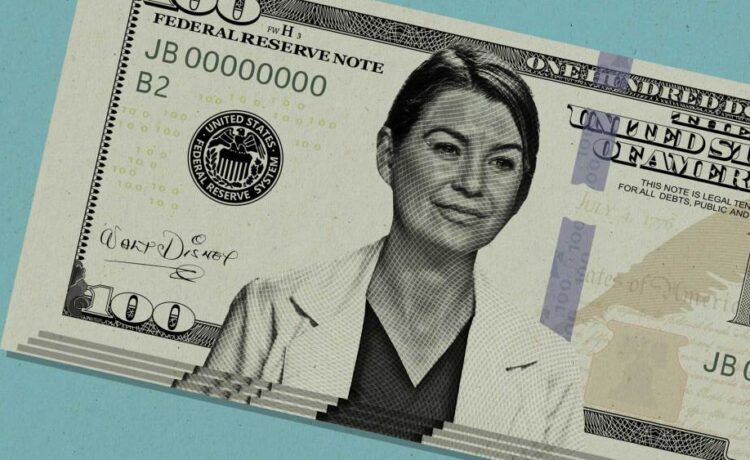While Bob Iger once famously compared loaning content to Netflix to “selling nuclear weapons technology to a third world country,” now it seems proceeds from those sales are needed to help fund the economy.
The proceeds, in this case, include another piece of content the Disney CEO is evidently hoping will bolster the company’s newly integrated streaming offering.
On Monday, news broke that the Mouse House and Netflix have agreed to share streaming custody of ABC’s “Grey’s Anatomy,” whose back catalog has long been a Netflix staple. “Grey’s” will come to Hulu in March 2024, just as Disney officially launches its new “one-app experience” rolling Hulu content into the flagship Disney+ app.
As part of this deal, Disney will reportedly license 14 series to Netflix on a nonexclusive basis, ranging from popular shows of yesteryear (“Lost,” “How I Met Your Mother,” “Home Improvement”) to recently concluded hits (“This Is Us,” Fox’s “The Resident”).
Disney will also likely receive some indeterminate licensing fee from Netflix for those shows, providing the Mouse House with some much-needed cash as CEO Iger embarks on his new “building” phase.
It’s yet another maneuver Disney has borrowed from its rival Warner Bros. Discovery, which has spent the year funneling more and more of its library content to Netflix, including old HBO series and recent DC superhero films.
Both Disney and WBD have made driving free cash flow a priority as they seek to rein in the runaway costs of the streaming era, and these licensing deals are evidently a key tactic to boost cash on hand. WBD has managed to reverse course from a negative cash flow of $930 million in Q1, rising to more than $2 billion as of Q3.
This is all indicative of a larger trend in Hollywood: While the shift away from a strict walled-garden content strategy has been underway for a while now, popular library titles are becoming an almost literal currency as we move deeper into this age of austerity. These titles are now being traded at levels not seen since before the streaming wars began, not only exchanged for cash but, with Disney’s deal, almost swapped like baseball cards (“We’ll trade you 14 shows for ‘Grey’s Anatomy’!”).
Furthermore, studios are now understanding that acquiring the right content through a licensing deal can be a more cost-effective strategy than producing a flood of original content.
Netflix knows this better than anyone. Beyond the headline-grabbing success of “Suits” on the platform this year, Netflix’s new engagement report revealed nearly half (45%) of viewing time on the service was spent on licensed content in the first half of 2023. The streamer first built its business on content borrowed from the traditional studios and has continued to leverage that content to great success.
Disney reclaiming “Grey’s Anatomy” for its own platforms indicates the Mouse House is also recognizing the value a “lean-back” library title can bring to a streaming portfolio for a relatively low cost. The medical drama consistently ranks among the most-streamed shows in any given week, according to Nielsen, and would be a high-profile addition to a Disney streaming portfolio that could certainly use it.
Disney is in the process of significantly scaling back on content spending; its expected outlay for 2024 is $25 billion, 40% of which will be allocated to sports, interim CFO Kevin Lansberry said on the company’s Q3 earnings call. That means far fewer original series will be moving through Disney’s pipeline next year (even discounting the strikes’ impact), but “Grey’s” should help to pick up the slack of lost streaming engagement from the contraction.
WBD, meanwhile, recently struck a new deal for A24’s coveted film catalog, which will bring both acclaimed library titles such as “Uncut Gems” and the indie label’s new theatrical releases to HBO and Max.
It’s another wise maneuver: WBD has arranged to bring the film slate that comes closest to matching HBO’s “prestige” brand into its fold, which should help to compensate for the reduced output we’ll likely see as the company reduces its own content spending from peak TV-era levels. Financial terms of the pact were not disclosed, but I’d wager it cost far less than the average original HBO or streaming series.
And given the chilly TV deal market in Hollywood at the moment, more high-profile licensing agreements are likely coming down the pike for at least the next few months. If content is still king, licensed titles are becoming some of the most valuable bargaining chips in Hollywood.

